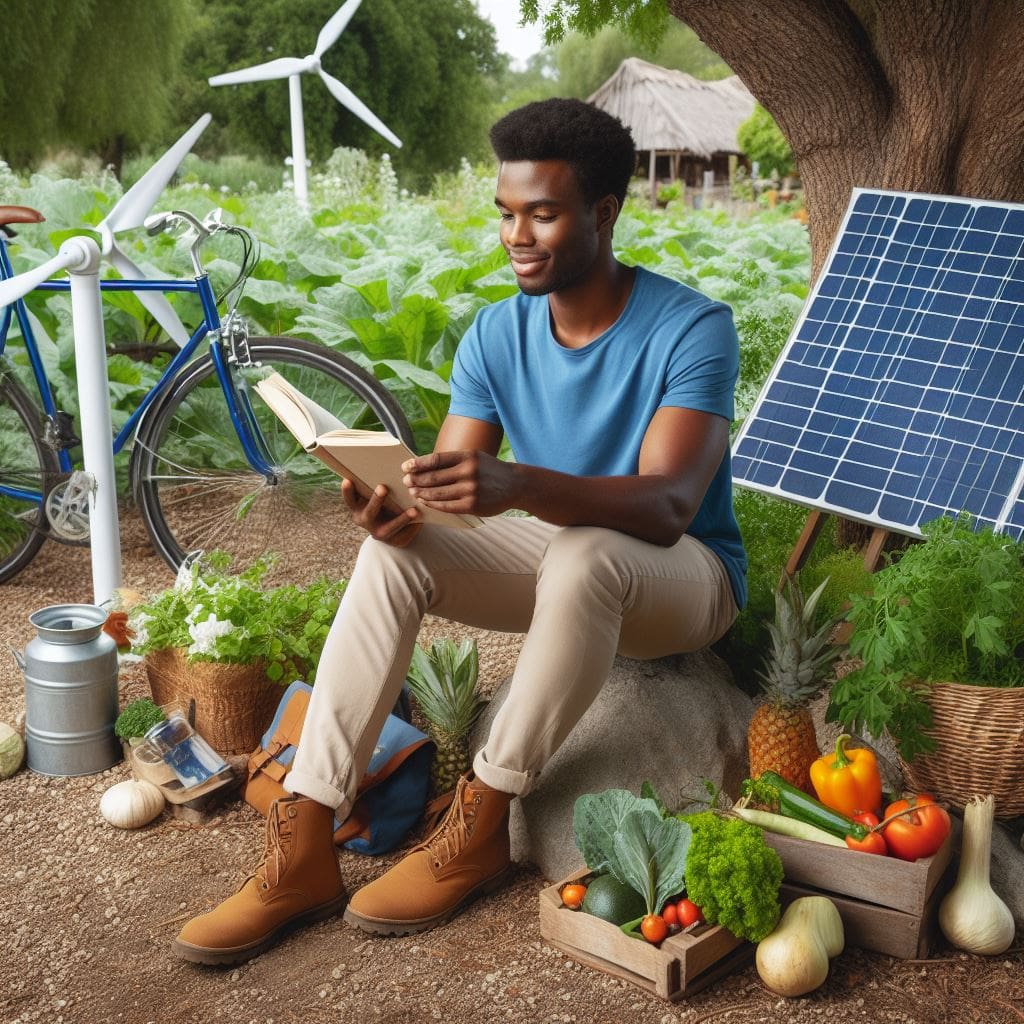
It’s more crucial in today’s world to run your life on a green footing. There are some major environmental challenges affecting our planet today such as global warming, pollution, and resource deficiency. These are some serious challenges that are adversely affecting the planet and its beings.
Adopting a sustainable lifestyle means making choices aimed at lowering your ecological footprint. Therefore, it involves usage of less energy, water among other items. Therefore, it implies reduction of wastes and emission.
You can do several of these, and lead an Eco-friendly life. Though some of these changes look small, they can lead to significant improvements when everybody is involved.
What is a sustainable lifestyle?
Sustainable way of living is that which offers satisfaction today and does not hinder subsequent generations from attaining their needs. Sustainability is based upon man coexisting with nature and the responsible use of resources which will not degrade the environment.
There are many different principles that can guide you towards a more sustainable lifestyle. Some of these principles include.
- Reduce: Use less of everything. This includes energy, water, food, and materials.
- Reuse: Use things more than once before throwing them away.
- Recycle: Turn old materials into new products.
- Compost: Turn food scraps and yard waste into nutrient-rich soil amendment.
- Support sustainable businesses: Choose products and services from companies that are committed to sustainability.
Why is it important to live a sustainable lifestyle?
There are many reasons why it is important to live a sustainable lifestyle. Some of the benefits include
- Protecting the environment: Living a sustainable lifestyle can help protect the environment from pollution, climate change, and resource depletion.
- Saving money: Many sustainable practices can save you money, such as using energy-efficient appliances and reducing your water consumption.
- Improving your health: A sustainable lifestyle often includes eating healthy foods and getting regular exercise, which can improve your overall health.
- Helping others: By living a sustainable lifestyle, you are helping to ensure that future generations have a healthy planet to live on.
How to live a sustainable lifestyle
There are many things you can do to live a more sustainable lifestyle. Here are a few tips
- Make your home energy-efficient: This includes weatherizing your home, using energy-efficient appliances, and switching to renewable energy sources.
- Conserve water: This includes taking shorter showers, fixing leaky faucets, and watering your lawn less often.
- Reduce food waste: This includes planning your meals, storing food properly, and composting food scraps.
- Shop sustainably: This includes buying local and organic food, and avoiding products with excessive packaging.
- Get involved in your community: There are many ways to get involved in sustainability initiatives in your community. You can volunteer your time, join a local environmental organization, or contact your elected officials to support sustainable policies.
Sustainable Living at Home
There are many things you can do to reduce your environmental impact at home. Here are a few tips:
- Use energy-efficient appliances: When purchasing new appliances, look for the Energy Star label. These appliances are designed to use less energy.
- Unplug electronics when not in use: Electronics continue to draw power even when they are turned off. Unplugging them when not in use can save energy.
- Switch to LED lightbulbs: LED light bulbs use up to 80% less energy than traditional incandescent bulbs.
- Wash clothes in cold water: Heating water is a major energy expense. Washing clothes in cold water can save energy.
- Dry clothes on a line: If possible, dry your clothes on a clothesline instead of using a dryer. This will save energy and wear on your clothes.
- Install a programmable thermostat: A programmable thermostat can automatically adjust your home’s temperature when you are not home. This can save energy.
- Seal up air leaks: Air leaks can let in cold air in the winter and hot air in the summer. Sealing them up can save energy.
- Use natural cleaning products: Many traditional cleaning products contain harmful chemicals that can pollute the environment. Choose natural cleaning products instead.
- Compost food scraps: Composting food scraps turns them into nutrient-rich soil amendment that can be used in your garden.
- Recycle and reuse materials: Recycle as much as possible. You can also reuse materials, such as glass jars and plastic containers.
Sustainable Living in the Community
Sustainable living in the community is making informed choices for a healthy planet. It is recommended that people should adhere to sustainable consumption, recycling of waste, saving energy and the usage of locally sourced products. In addition, sustainable agriculture is associated with community gardens and composting project initiatives. Those who promote use of public transport, bicycles, and walking will reduce their carbon footprint. Collaboration in renewable energy projects ensures a brighter and green environment. Sustainable living involves people and the planet. It is not only about saving the environment but also fostering communities that harmonize with people and the planet. Such people live in harmony with their environment, thus promoting health and sustainability in a world we live in now and for generations to come.



